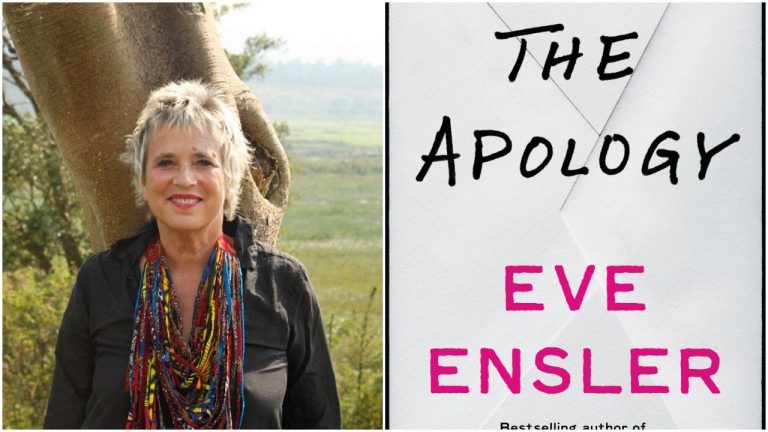[Trigger warning: descriptions of sexual, physical and emotional abuse]
Earlier this year I was approached by an organization in Delhi, one of whose senior staff had been accused of sexual harassment. As someone who works on sexual violence, I was asked what the organization should do. I advised meeting with the survivor to hear her out. At this meeting, I was given to understand that the survivor narrated her experiences, but also demanded that the staff member do the difficult work of looking inside himself, ideally with the help of therapy, to understand the gravity of his actions and the hurt they had caused her. Stripped to its essentials, what she was asking for was empathy.
I got another call a few months later from the man. While he had started therapy, it didn’t seem that he had self-reflected internally or understood why his actions were wrong. This is why The Apology is such a timely book. Eve Ensler writes an imagined letter from her father, Arthur Ensler, who died over 30 years ago, in the form of an apology for the years of sexual, physical and emotional abuse and manipulation he subjected her to. We have been in the midst of #MeToo for about two years now. We have heard the survivors’ stories and amplified their voices (though much remains to be done for the millions who still remain voiceless, in particular those at the intersection of multiple marginalizations). But we have heard little from men. There have been a few apologies, but none that seems authentic or true, none that seems to have been offered after genuine introspection or self-reflection or the result of opening oneself up to vulnerability. For so many centuries of patriarchy, this is quite underwhelming.
I got another call a few months later from the man. While he had started therapy, it didn’t seem that he had self-reflected internally or understood why his actions were wrong. This is why The Apology is such a timely book.
Perhaps it is because masculinity is so difficult to unravel. This is something The Apology explores in poignant detail: “I ask you, Eve, what then is the alternative? What is a man cast out of the kingdom of men? Perhaps you cannot understand this loyalty. It’s what gives us purpose and meaning and place. What land will we walk on after exile?” The moments in the letter that ponder upon the nature of how boys are raised were for me some of the most moving. One portion in particular stood out to me; Arthur (as written by Eve) recounts how when young he was struck by wonder, but how swiftly and brutally it was crushed: “As a child I was awed by sky and stars and the magnificence of creation. But all that was quickly discouraged and directed into performance. There was no time to linger in idle meditation. I was here like other boys to improve myself, to achieve, advance, and win. This world of mystery and wonder was not to be appreciated and revered. It was to be occupied, owned, and conquered.” I found this so reflective of the constant efforts at one-upmanship that I see the men in my own life act out.
Ensler says she has waited for an apology from her father for decades, searching for any sense of empathy he may have possessed. But it takes vastly deep levels of compassion and empathy for the survivor herself to embody her abuser with agency, a voice, and a mind, and to perform the emotional labor of self-awareness for him. It is so much easier to cast abusers as monsters. As a feminist I always encourage myself and others to look for and reform the faults within our systems, instead of blaming individual wrongdoers, but this is far easier said than done. However, Ensler manages to humanize her abuser with her formidable writing.
Also read: Book Review: Orlando By Virginia Woolf
She goes into (imagined, as her father never opened up to her) detail about his disturbing childhood with an overly adoring mother, demanding father and sadistic brother, and how he was brought up on parenting techniques that involved the strictest punishment in the face of the slightest disobedience. Subsequently, he grew up to project a charming, handsome persona, but one that was entirely distanced from his real self. When his daughter dared assert any autonomy whatsoever, he punished her with sexual abuse, physical violence and daily gaslighting.
As a feminist I always encourage myself and others to look for and reform the faults within our systems, instead of blaming individual wrongdoers, but this is far easier said than done. However, Ensler manages to humanize her abuser with her formidable writing.
The book goes into detail about the years of abuse, which Eve asserts is essential for a genuine apology. It is heartbreaking to read the almost sickening description of how Arthur perceived Eve as a child, and how his adoration turned sexual when she was just five years old. The book’s portrayal of abuse as power was, for me, almost cathartic. Arthur recognizes, in his apology, that Eve could not have understood what was happening to her, but one night after many years, something changed. She stiffened her body in response to what he was doing to it. From then on, the abuse turned to manifestations of control in the form of rough sexual abuse even when she was nonresponsive or actively asking him to stop (at this point she was still less than ten years old), physical violence in the form of punching, beating and choking her, and emotional abuse in the form of making her believe she was constantly wrong and constantly making mistakes, as well as pitting the rest of the family against her.
Ensler hopes that men will read the book as a text for a true reckoning with oneself and one’s deeds. If that does happen, we might well change the world. She also hopes that women will be able to write imagined apologies from their abusers to free themselves, but I think it would take a lifetime of emotional work to transcend from anger and rage at one’s abuser to the level of compassion it would require to understand where they come from.
Also read: Book Review: Pyre By Perumal Murugan
The Apology is physically slim but emotionally hefty, almost unbearable in parts. I found myself wanting to pause for breath at multiple moments, but another part of me wanting to read on. I had dived into the book with an almost cavalier nonchalance, without asking myself whether I was ready for the idea of abusers offering apologies. I got much more than I could have ever imagined; The Apology is a powerful and devastating book, and it will stay with me for a long time to come.
Featured Image Source: WHYY
About the author(s)
Mini Saxena is a lawyer from Delhi. When she's not ranting about feminism, you can find her travelling solo, dancing like no one's watching, or reading.




